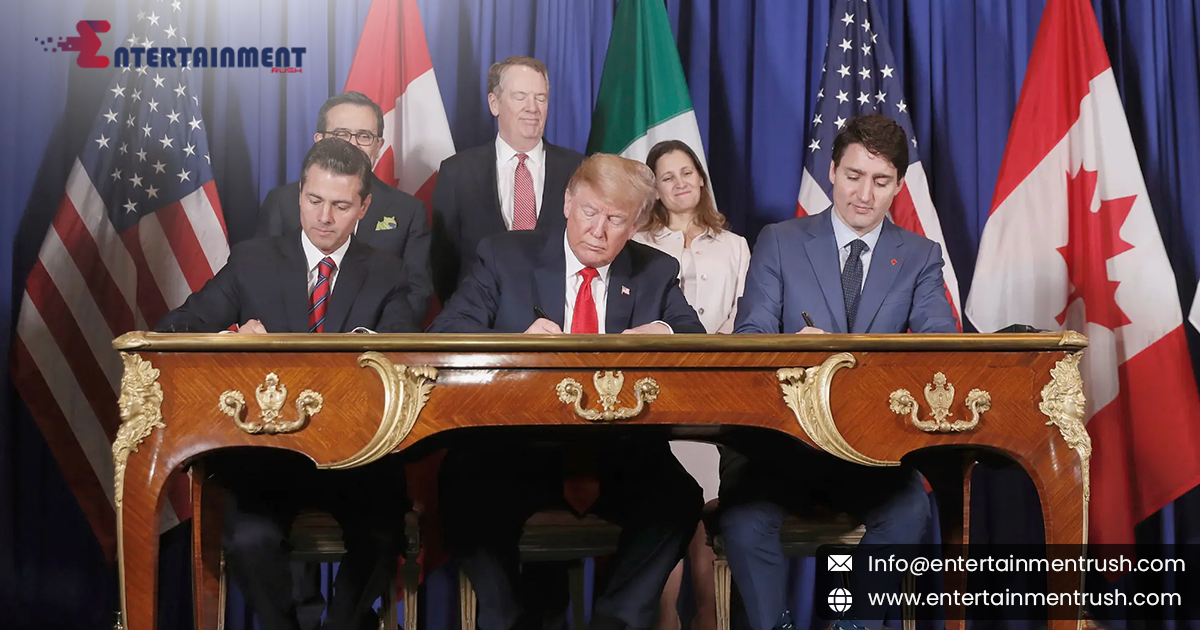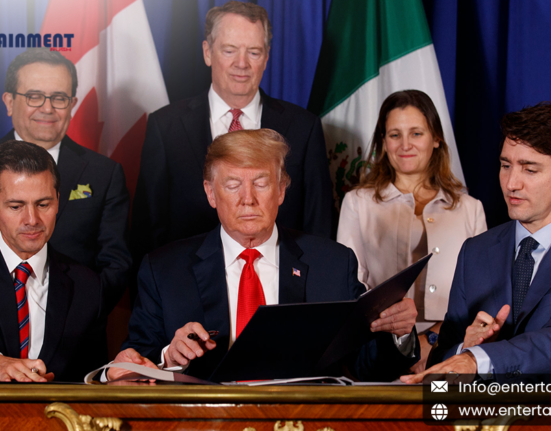The North American Free Trade Agreement (NAFTA), enacted in 1994, stands as a pivotal moment in trade policy and American politics. By creating a trilateral trade bloc between the United States, Canada, and Mexico, NAFTA was designed to boost economic growth and enhance trade relations. However, its impact extended far beyond economics, reshaping American politics in profound and lasting ways. This blog explores how NAFTA shaped American politics, influencing party alignments, policy debates, and national discourse.
The Origins and Objectives of NAFTA
NAFTA was intended to eliminate trade barriers, reduce tariffs, and promote economic integration among the three North American countries. Proponents argued that it would lead to job creation, economic growth, and increased competitiveness on a global scale. For the United States, it was seen as an opportunity to strengthen trade relations with its neighbors and bolster its position in the global market.
Political Realignments and Shifts
Economic Discontent and Political Fallout
While NAFTA achieved some of its economic goals, it also led to significant economic disruptions. In the U.S., the agreement was associated with job losses in certain industries, particularly manufacturing. This economic discontent contributed to a shift in political attitudes and party alignments. Workers and communities negatively impacted by NAFTA’s outcomes began to question the benefits of free trade and the effectiveness of existing political leaders and policies.
Rise of Populist Sentiments
NAFTA’s economic consequences played a role in the rise of populist sentiments within American politics. The perceived negative impact on working-class jobs and industries fueled a growing sense of economic insecurity and dissatisfaction. This discontent provided fertile ground for populist candidates and movements, who capitalized on frustrations with trade policies and globalization to garner support.
Partisan Divisions
The debate over NAFTA intensified partisan divisions in American politics. Initially supported by both major parties, NAFTA’s implementation led to differing views on its effectiveness and impact. Democrats and Republicans increasingly polarized around trade issues, with Democrats often focusing on the need for stronger labor protections and environmental standards, while Republicans emphasized the benefits of free trade and deregulation.
Influence on Policy Debates
Trade Policy Evolution
NAFTA’s impact on American politics is evident in the evolution of trade policy. The agreement set a precedent for future trade negotiations and agreements, shaping how subsequent trade deals were negotiated and perceived. The controversies and debates surrounding NAFTA influenced how trade policy was approached, with a greater emphasis on addressing concerns about job losses and economic inequality.
Labor and Environmental Standards
The shortcomings of NAFTA in addressing labor and environmental concerns led to increased scrutiny of trade agreements. The need for stronger protections for workers and the environment became prominent in policy discussions, influencing the content and structure of subsequent trade agreements. The debate over NAFTA highlighted the need for comprehensive trade policies that balanced economic growth with social and environmental considerations.
Impact on Presidential Elections
NAFTA also played a role in shaping presidential elections. The debate over the agreement became a significant issue in campaigns, influencing voter preferences and party platforms. Candidates’ stances on NAFTA and trade policy became key factors in their appeal to voters, reflecting the broader political impact of the agreement.
Lasting Effects on American Politics
Legacy of Trade Policy
The legacy of NAFTA continues to influence American politics and trade policy. The agreement’s impact on economic inequality and job displacement has informed ongoing debates about trade agreements and globalization. The lessons learned from NAFTA have shaped how future trade policies are crafted, with an increased focus on addressing the needs of affected workers and communities.
Political Polarization
The political polarization that emerged in response to NAFTA has persisted in American politics. Trade policy remains a contentious issue, with debates often reflecting broader ideological and partisan divides. The experience of NAFTA has contributed to a heightened sensitivity to the economic and social impacts of trade agreements.
Global Trade Relations
NAFTA’s influence extends beyond U.S. borders, affecting global trade relations and the approach to international trade agreements. The agreement set a model for other trade deals and influenced how countries negotiate and address trade-related issues.
Conclusion
NAFTA’s impact on American politics is a testament to the profound ways in which trade policies can shape national discourse and party dynamics. From economic disruptions and political realignments to shifts in policy debates and electoral outcomes, NAFTA has left a lasting imprint on American politics. Understanding how NAFTA shaped American politics provides valuable insights into the complexities of trade policy and its far-reaching effects on the political landscape.





Leave feedback about this